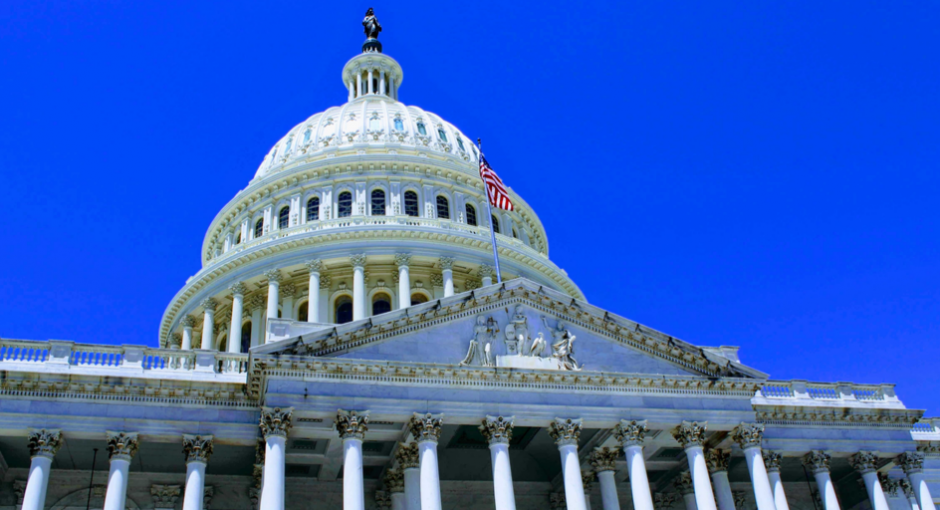340B covered entities are ramping up their lobbying on Capitol Hill as Congress works toward possible enactment soon of major drug pricing reforms.
Entities are telling key members of Congress and their staffs that while they support federal action to lower drug prices, they worry about unintended consequences that could weaken the 340B program and the wider health care safety net.
The Democratic-controlled House and Senate passed budget legislation this summer clearing the way for party-line votes on President Biden’s and congressional Democrats’ Build Back Better plan to boost spending on infrastructure, jobs creation, climate change, housing, economic fairness, and health care.
Democrats intend to enact the plan through a process called budget reconciliation, which allows bills to be passed with a simple majority vote. Democrats and Republicans each have 50 seats in the Senate, with Democratic Vice President Kamala Harris casting the tie-breaking vote. It normally takes a 67-vote supermajority for a bill to clear the Senate.
The House is taking the lead on crafting the budget reconciliation measure because it involves raising taxes. All tax bills must originate in the chamber. Thirteen House committees are contributing sections for matters under their jurisdiction. After the House is finished, the process will be repeated in the Senate.
Negotiations continue over the plan’s drug pricing provisions. The House Ways and Means Committee, which has jurisdiction over Medicare, will begin marking up its section of the plan tomorrow and Friday. This week’s markup does not address drug pricing. Chairman Richard Neal (D-Mass.) said in August that he expected it would take the committee four or five days to finish all its work on the plan. The House Energy and Commerce Committee, which has jurisdiction over the Medicaid and 340B programs, will also play a key role in how the Build Back Better plan tackles high drug prices. It had not yet scheduled its markup of its section of the plan as of this morning.
340B entities are focused on making sure that the Build Back Better legislation excludes or modifies “spread pricing” language taken from the House Democrats’ drug pricing bill H.R. 3 and bipartisan Senate Finance bills from the last session of Congress. That language would effectively end entities’ ability to earn income by billing Medicaid managed care organizations at above acquisition cost for 340B-purchased drugs.
More recently, entities also have begun expressing concerns on Capitol Hill about how other Build Back Better provisions to lower drug prices potentially could slash 340B program savings.
These concerns focus on proposals to give Medicare authority to negotiate prices on a subset of high-cost drugs. Entities are asking lawmakers and their staffs to be aware that if Medicare, for example, negotiates a deep reduction on a drug, and the 340B discount on the drug remains the same percentage, an entity’s up-front 340B discount savings on the drug will be smaller than it otherwise would have been. On the back end, an entity’s earnings from billing payers for 340B purchased drugs at above acquisition cost also likely would be less. 340B hospitals, health centers, and clinics are pointing out that less money in 340B revenues means less money to pay for vital but money-losing patient services.
Entities and the groups representing them are asking members of Congress to keep the 340B program in mind as lawmakers seek consensus on lowering drug prices.
America’s Essential Hospitals (AEH) asked House Speaker Nancy Pelosi (D-Calif.) and Senate Majority Leader Chuck Schumer (D-N.Y.) in a Sept. 2 letter to “protect the 340B Drug Pricing Program benefit from harmful policy changes” as Congress works on the Build Back Better plan and other legislation before the end of the year.
“Drug pricing reform must recognize potential ramifications on existing safety net supports for
essential hospitals,” the group said. “Lawmakers must consider how proposed drug pricing policies would interact with the 340B program and ensure those policies would not undermine the benefit of this critical lifeline, especially as essential hospitals continue to respond to the challenges presented by COVID-19.”
AEH specifically asked Congress “to reject policies that would require Medicaid managed care plans to pay for outpatient drugs at actual acquisition cost.”
“Such a policy would drastically reduce 340B savings for some providers in the program,” it said. “If, however, drug pricing reforms ultimately do reduce the value of the 340B savings to essential hospitals, it will be critical to issue another form of funding to ensure our members can continue to innovate and respond to the unique care challenges and needs of marginalized populations.”
The American Hospital Association (AHA), meanwhile, asked Pelosi, Schumer, Senate Republican Leader Mitch McConnell (Ky.), and House Republican Leader Kevin McCarthy (Calif.) in a Sept. 2 letter to protect hospitals from losing 340B eligibility in conjunction with their work on the budget and on drug pricing.
“The cost of and access to prescription drugs are major concerns for hospitals and health systems,” AHA said. “Continued rising drug prices, as well as shortages for many critical medications, are disrupting patient care and straining hospitals’ budgets and operations. The AHA is committed to working for action on policies that foster transparency, competition and value while preserving innovation.”
Under the heading “Prescription Drug Pricing,” AHA said it supports “providing temporary relief for any hospitals participating in the 340B Drug Pricing Program that had to leave the program due to changes in their patient mix as a result of the COVID-19 pandemic.”


